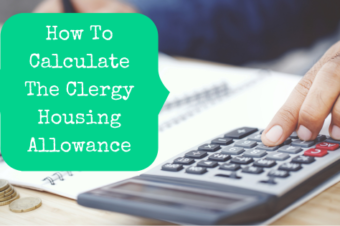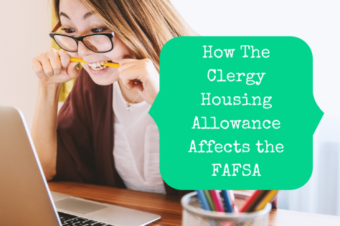
Though it took five months, the Seventh Circuit Court of Appeals has finally ruled in favor of the clergy cash rental housing allowance (the parsonage allowance was not at issue), declaring it to be constitutional. Here at Pastor’s Wallet, we have been following this story for over a year.
Background
The drama actually began back in 2013 when the leaders of the Freedom from Religion Foundation (FFRF) sued the US government because they believed the ministerial housing allowance to be a violation of the separation of church and state. The judge agreed with them, but it didn’t last long.
An appeals court found that the FFRF lacked standing in the case. Basically, they had no right to sue because they had not been harmed by the clergy housing allowance.
Determined as ever, the FFRF leaders tried to claim a ministerial housing allowance. As expected, they were denied. However, that denial gave them standing to take the issue to court. And so they did.
In October of 2017, the FFRF brought their case back to court and it was tried by the exact same judge. To no one’s surprise, the judge again ruled in favor of the FFRF, declaring the housing allowance to be unconstitutional.
Once again, it was appealed. A three-judge panel of the US Court of Appeals for the Seventh Circuit in Chicago heard the arguments last October, and they have just now issued a ruling. Their decision: the clergy housing allowance does not violate the US constitution.
How The Clergy Housing Allowance Is Constitutional
Our American legal system relies heavily on precedent and case law. That means that not everything is spelled out exactly in our laws. Rather, judges look at previous cases and rulings to guide them on how to decide matters. There were two different Supreme Court cases that they really focused their attention on in coming to a decision regarding whether the cash housing allowance violates the Establishment Clause, or the separation of church and state, as FFRF claimed.
The first case was Lemon v. Kurtzman, which provides three tests to see if something violates the First Amendment’s separation of church and state. The first test is that the law must maintain a secular legislative purpose. The court noted that other non-religious workers also receive employer-provided housing exempt from federal income taxation. Also, the cash allowance is designed to ensure equal treatment among ministers, regardless of where their housing comes from. They found that the way the cash housing allowance is set up in the tax code avoids “excessive entanglement with religion” for the government. The Treasury Department argued that all three of those constitute secular legislative purposes, and the judges agreed.
The second test is that its principal or primary effect cannot advance or inhibit religion. The judges cited a Supreme Court ruling that a tax exemption based on a housing allowance is not a government subsidy. Based on this, the housing allowance passed the second test.
The third test is that the law cannot foster an excessive government entanglement with religion. The Court of Appeals stated that applying housing exemptions to ministers the same way they do for secular employers and employees would, in fact, cause excessive entanglement. The current clergy housing allowance rules do not, and therefore they should remain.
The other past court case addressed is Town of Greece v. Galloway. This case establishes that the Constitution’s separation of church and state must be interpreted by reference to historical significance. The court recognized a lengthy tradition of tax exemptions for religion (even Joseph established one in Egypt back in Genesis!), especially in regard to church-owned property. Such exemptions have never been seen as an establishment of religion and so the appeals judges didn’t see them as such either.
The Future Of The Clergy Housing Allowance
While this is a great victory for pastors everywhere, it does not mean that the war on the housing allowance is completely over. The FFRF can still take the case to the Supreme Court. Even if they try, though, there is no guarantee that the Supreme Court will hear the case, as they only hear about 1% of the cases presented to them each year.
The FFRF has also indicated that they may lobby members of Congress to repeal the clergy housing allowance. As a counter-measure, you could write to your congressional representatives in support of the housing allowance and encourage your friends and family to do the same.
In light of everything that is going on, this is my advice to you regarding the pastoral housing allowance:
- Enjoy it while you have it.
- Pray that you can keep it.
- Come up with a Plan B in case it all goes away.



